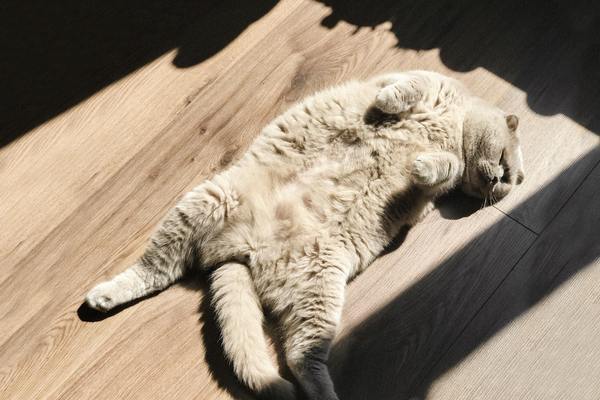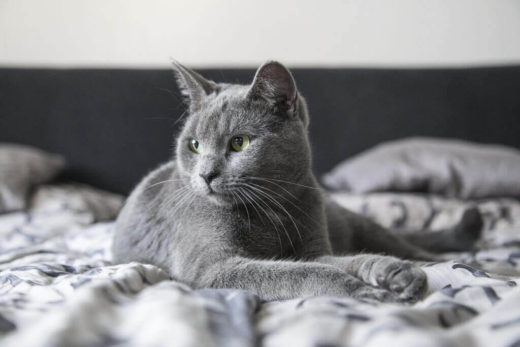
It’s a hot one out there. During these summer heat waves, it’s more important than ever to keep a close eye on your cat and help ensure they’re keeping comfortable.
We all know dogs pant to keep themselves cool but did you know that cats don’t pant until they’re overwhelmed by heat? A cat’s normal temperature range 38.6°C to 38.9°C and if an animal’s environmental air isn’t cooler than their internal temperature, they’re at risk to succumb to heatstroke.
Some types of animals are more susceptible to overheat like seniors, obese/overweight, and brachycephalic breeds (ex. Persians and Himalayans)
o Panting, open-mouth breathing
o Drooling, salivating
o Vomiting or diarrhea
o Lethargy, weakness, collapse, seizures
o High body temp, rapid heart rate
If you start noticing these symptoms, move the animal to a cool and shady place immediately. Use a fan and chilled cloth to cool the animal while contacting your veterinarian. Do not use ice, as this can possibly make their heatstroke worse. Once you’ve contacted your veterinarian, it’s likely they’ll want you to bring your pet in ASAP.
Dealing with a health scare is never fun for you or your cat. Here are few ways you can try to avoid heatstroke altogether and keep your cat safe and comfortable and these temperatures climb.
Food
Cats don’t sweat but they do release heat through their tongue, nose and footpads! This is an excellent opportunity for owners to not only keep their cats cool but provide seasonal enrichment.
Freezer treats in ice-cube trays are yummy and provide lots of options. Freeze catnip mixed with water, tuna brine (no salt!), chicken broth (no salt, onion or garlic!) or some high-value food like Inaba Churu. Try freezing your cat’s daily wet food and give it to them during mealtime.
A great way to keep their tongue, nose and toe beans cool is to drop these cubes on a hard floor and encourage your kitties to bat them around!
Water
Cats naturally love drinking running water. In the wild, running water is less likely to harbour bacteria and diseases that would make them sick. Consider investing in a water fountain and be sure to change the water daily.
Provide lots of bowls of fresh water with ice cubes in shady spots around the house. Remember to keep them away from the litterbox!
If you have an outdoor space, leave a fresh bowl of water outside for outdoor cats, birds and even bees to replenish their fluids!





